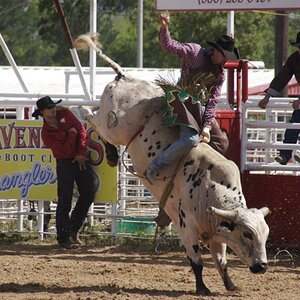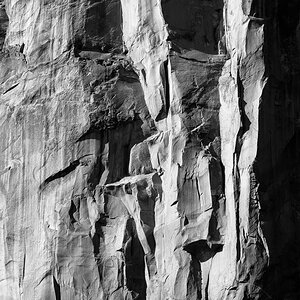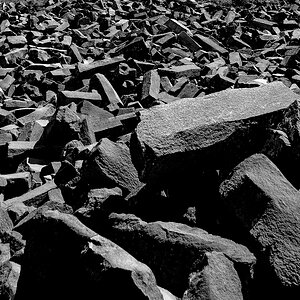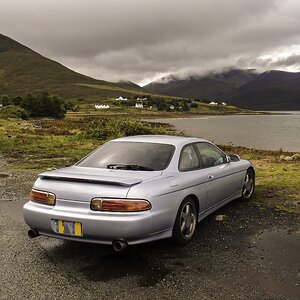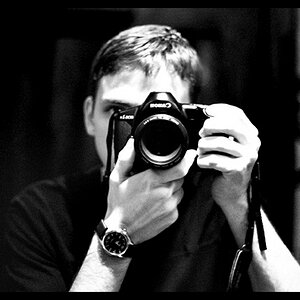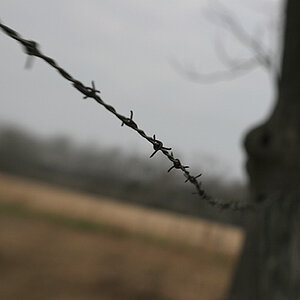Senor Hound
TPF Noob!
- Joined
- Apr 23, 2008
- Messages
- 1,425
- Reaction score
- 0
- Location
- La la land...
- Can others edit my Photos
- Photos OK to edit
I've been racking my brain on what kind of DSLR camera to buy lately. And I can't decide, mostly because they're all so good. I was looking at a Canon (cause I have two lenses for one), and then a Nikon (all the controls are in the right places), and then I was looking at a Sony/KonicaMinolta (in-camera IS will greatly help shooting indoors with a kit lens, which is what I plan on doing a lot of), and then a Pentax (I hear you can get good prime lenses for cheap with a K100)
The truth is, I can LEARN to love any camera. I haven't been shooting near long enough to have any ingrained patterns in me which require me to be brand loyal. And I really only foresee me using this camera with kit lenses and possibly a prime or two (if I can get one for a good price). At this point in time in my life, I am so poor that if I decide to upgrade, I'd probably change out everything, not just one piece at a time like most do.
Everyone says to pick the one that feels the best, but the cameras are so similar to a SLR noob like me, that it really doesn't matter all that much.
And image quality doesn't really matter too much, cause they're all close, and will all blow my Panasonic out of the water with image quality.
So, considering all of this, does it REALLY matter what brand or type of camera I buy? At this point I'm starting to wonder.
The truth is, I can LEARN to love any camera. I haven't been shooting near long enough to have any ingrained patterns in me which require me to be brand loyal. And I really only foresee me using this camera with kit lenses and possibly a prime or two (if I can get one for a good price). At this point in time in my life, I am so poor that if I decide to upgrade, I'd probably change out everything, not just one piece at a time like most do.
Everyone says to pick the one that feels the best, but the cameras are so similar to a SLR noob like me, that it really doesn't matter all that much.
And image quality doesn't really matter too much, cause they're all close, and will all blow my Panasonic out of the water with image quality.
So, considering all of this, does it REALLY matter what brand or type of camera I buy? At this point I'm starting to wonder.




